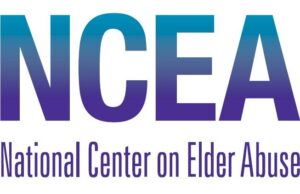Understanding Elder Abuse in Minority Populations
By Toshio Tatara

The Susan B Anthony Center has collected a series of resources related to Elder Abuse as part of our AgeWise Webinar Series. This information has been collected from a variety of sources, credited when listed, and we are indebted to all the work they have done to highlight this critical issue.





Understanding Elder Abuse in Minority Populations
By Toshio Tatara
FAQs about Nursing Facilities
By Justice in Aging
Age-Friendly Communication Style Guide
By Lifespan
Adult Protective Services, What You Must Know
By National Center of Elder Abuse
An Overview of Elder Abuse
By NCALL
Addressing Harm to Indigenous Elders
By NCALL
Taken from a fact sheet produced by the National Center on Elder Abuse
What is Elder Abuse?
Elder abuse refers to intentional or negligent acts by a caregiver or trusted individual that causes harm to an older person. Elder abuse takes many forms, including:
• Neglect or Isolation
• Physical abuse
• Sexual abuse
• Financial abuse and exploitation
• Emotional or psychological abuse (including verbal abuse and threats)
Why Should We Care About Elder Abuse?
Caring about elder abuse is caring about justice for all. As a country, we are committed to ensuring the just treatment of all people, but elder abuse violates this value. The costs of elder abuse are high for the affected individuals and society alike. Their losses can be
tangible (homes and life savings) and intangible (dignity, independence, and possibly their lives).
For society, elder abuse is both a social and economic issue: it creates health care and legal costs, which are often shouldered by public programs like Medicare and Medicaid, and isolates them from the community. It’s in everyone’s interest to care about and prevent elder abuse.
What Causes Elder Abuse?
Our policies and practices make it hard to stay involved with and connected to our communities
as we age. As a result, older people are more likely to experience social isolation, which increases the likelihood of abuse and neglect. Elder abuse affects older people across all socioeconomic groups, cultures, and races and can occur anywhere when they are disconnected from social supports:
• In a person’s own home
• In nursing homes, assisted living facilities, and other institutional settings
• In hospitals
While any older person is potentially at risk of elder abuse, some are more susceptible to experience abuse or neglect than others. Based on available information, women and people 80 and older are more likely to experience abuse. Factors such as dementia or poor physical health can increase older people’s isolation, which in turn puts people at greater risk of experiencing abuse or neglect.
How Can We Prevent and Address the Problem?
There are many ways to get involved in creating a stronger society that safeguards our communities and prevents elder abuse from occurring. We can all be “beams” of support in our society structure.
Build Public Awareness:
• Talk about the issue to increase the identification and reporting of abuse by the public, professionals, and older people who experience abuse
• Provide older people who experience abuse with a safe environment to speak out and tell their stories
• Begin long-term prevention by raising awareness of solutions among students and young people
• Challenge injustice and ageist stereotypes
Enhanced Services For Older People Who Experience Abuse:
• To help prevent abuse, more services to reduce isolation should be available to those at risk for abuse
• To intervene more effectively, shelters for older people and other support services, such as in home help and in-home medical attention, should be established and targeted to at-risk older people to mitigate the risk of abuse or to remove people from dangerous situations
• To protect their well-being and assets and to prevent further harm, adequate services should be targeted to older people who experience abuse
Enhanced System Resources:
• To improve the training of state adult protective services workers so they are prepared to respond to increasing numbers of elder abuse reports
• To improve continuing education for mandated reporters on: risk factors and red flags of elder
abuse, what to do when they suspect elder abuse, where to report suspicions, and how to respond most effectively